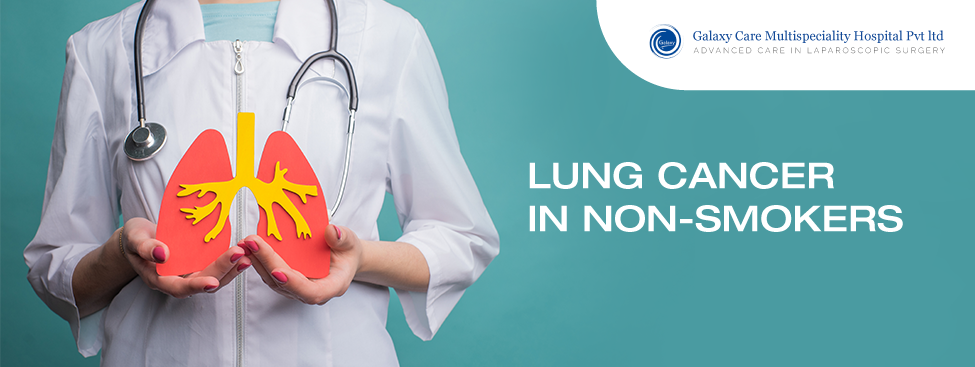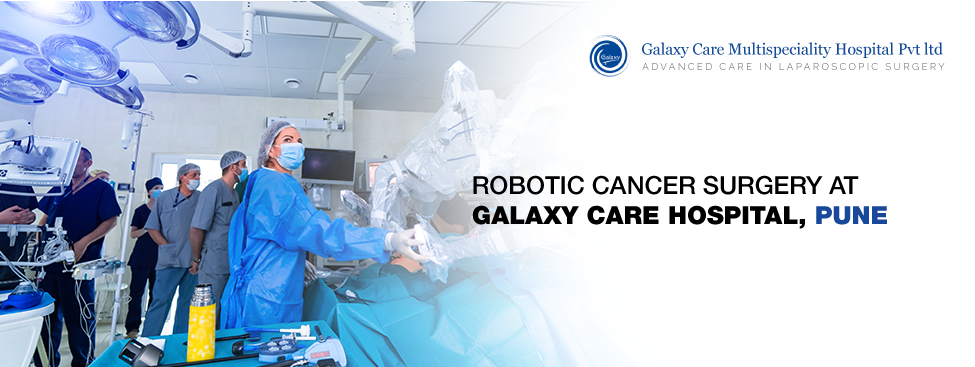
LUNG CANCER IN NON-SMOKERS: AN UNEXPECTED REALITY
When we think of lung cancer, our minds associate it with smoking. While it’s true that smoking is the primary risk factor, contributing to most of lung cancer cases, there exists a significant population of non-smokers who also fall victim to this disease. Lung cancer in non-smokers is a reality that often goes unnoticed, and it’s essential to shed light on this issue.
Lung cancer can affect anyone, regardless of their smoking status. It is a complex and multifaceted disease, and its development in non-smokers can be attributed to various factors. As the Best Lung Cancer Hospital in Pune, we diagnose and treat hundreds of lung cancer patients every year. We can say that the exact causes of lung cancer may vary. However, it is crucial to recognize that no one is immune to this devastating illness. Let’s understand the potential causes and risk factors of lung cancer in non-smokers.
Risk Factors for Lung Cancer in Non-Smokers
While smoking remains the most significant risk factor for lung cancer, several other factors can contribute to its development in non-smokers. Here are some of the most notable ones:
- Secondhand Smoke Exposure: Inhaling secondhand smoke, also known as environmental tobacco smoke, can increase the risk of lung cancer in non-smokers. This exposure can occur in various settings, including homes, workplaces, and public spaces.
- Radon Exposure: Radon is a naturally occurring radioactive gas that can accumulate in homes, schools, and workplaces. Prolonged exposure to high levels of radon is a known risk factor for lung cancer, especially in non-smokers.
- Occupational Exposures: Certain occupations, such as mining, construction, and manufacturing, may expose workers to carcinogens like asbestos, silica dust, and various chemicals, increasing their risk of developing lung cancer, even if they do not smoke.
- Air Pollution: Long-term exposure to outdoor air pollution, particularly fine particulate matter, can contribute to the development of lung cancer in both smokers and non-smokers.
- Family History and Genetics: Individuals with a family history of lung cancer or certain genetic mutations may have a higher risk of developing the disease, regardless of their smoking status.
Symptoms and Detection
The symptoms of lung cancer in non-smokers can be similar to those experienced by smokers. Common signs and symptoms include persistent cough, shortness of breath, chest pain, coughing up blood, hoarseness, and recurrent lung infections. However, in some cases, lung cancer may not present any noticeable symptoms until it has progressed to an advanced stage.
Early detection is crucial for improving treatment outcomes and increasing survival rates. Regular lung cancer screening can help identify lung cancer in its early stages, even in non-smokers. It’s important for individuals, especially those with risk factors, to discuss screening options with their healthcare providers. Seek consultation from the Best Lung Cancer Specialist in Pune.
Treatment Options
The treatment approach for lung cancer in non-smokers is generally similar to that for smokers, with some variations based on individual factors such as the cancer stage, tumor type, and overall health.
Common treatment options include:
- Surgery: Surgical removal of the tumor, or a portion of the lung, may be recommended for early-stage lung cancer in non-smokers.
- Radiation Therapy: This treatment uses high-energy radiation to kill cancer cells and shrink tumors. It can be used alone or in combination with other treatments.
- Chemotherapy: Chemotherapy drugs are designed to target and destroy rapidly dividing cancer cells. They may be used before or after surgery, or in combination with radiation therapy.
- Targeted Therapy: In some cases, targeted therapies, which target specific genetic mutations or proteins that drive cancer growth, may be an option for non-smokers with certain types of lung cancer.
- Immunotherapy: This innovative treatment approach harnesses the body’s immune system to recognize and attack cancer cells. It has shown promising results in certain types of lung cancer.
It’s important to note that the treatment plan is tailored to each patient’s unique circumstances, taking into account factors such as overall health, age, and personal preferences.
Lung Cancer Specialist in Pune
If you or a loved one has been diagnosed with lung cancer, seeking the expertise of a Lung Cancer Specialist in Pune is crucial. Galaxy Care Hospital has a dedicated team of Lung Cancer Doctors in Pune who are highly experienced in diagnosing and treating various types of lung cancer. Our multidisciplinary approach ensures that patients receive personalized and effective treatment plans tailored to their specific needs. We provide state-of-the-art medical treatment and facilities to our cancer patients, ensuring they only focus on healing. Feel free to book your consultation today!


